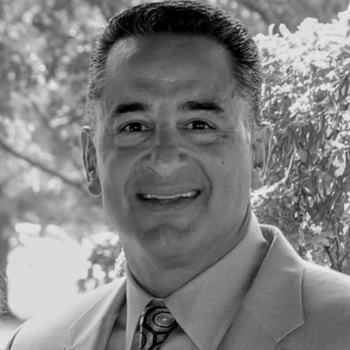TASHJY: There were no milk and cookies at Normandy
For some perspective on life’s real challenges, today’s students need a history lesson.
Ken Tashjy served as General Counsel for the Massachusetts Community College System for over 21 years and currently serves as a higher education attorney and consultant.
How is it possible that in two generations, our country could go from producing the “greatest generation,” which liberated millions of people from fascist and Nazi oppression, to a generation that is arguably the most narcissistic and emotionally fragile ever?
Look, don’t get me wrong, passion is good, but what we have these days, particularly among many college students, is a lot of passion with very little perspective.
Passion without perspective leads to wild, exaggerated, and irrational claims, such as comparisons to Adolf Hitler or accusations that a particular candidate is a fascist bent on tyranny and totalitarianism—claims we have heard throughout this election cycle.
Passion without perspective has given rise to a generation of students seemingly unable to cope with the outcome of the election or the self-induced fear and anxiety it has caused.
Just look around, instead of attending classes on the day after the election, many students needed the day off so they could “recover” from their election trauma. Many have still not recovered.
At Harvard, students were despondent at the prospect of another Trump presidency, with one student telling the school’s newspaper they “cried for like an hour.”
At the University of Massachusetts, students are resorting to “Island Vibes Yoga,” and “Art Therapy” to manage their emotions; students at Georgetown University are visiting “self-care suites” where they can play with Legos, use coloring books, and are offered milk and cookies; at Central Washington University, students have been cuddling up to therapy kittens; and at Cornell University students held a “cry-in.
Talk about being ill-prepared to handle life’s challenges!
By contrast, this past June 6 marked the 80th anniversary of the D-Day invasion of France.
Having recently visited Normandy, and in particular the American Cemetery perched high above Omaha Beach, I was struck by the incredible courage and sacrifice of our servicemen, many of which were college age, with some being too young to buy a beer or vote at the time.
From every meandering field and behind every thick hedgerow emerge countless stories of selfless young men who made the ultimate sacrifice to break the iron grip of fascism and Nazism that had ruled over Western Europe for four long years.
One such young man was Private First-Class (PFC) Joseph Fitt of the 82nd Airborne Division.
After parachuting into Normandy in the early morning hours of June 6, 1944, Fitt and his comrades were tasked with securing the La Fiere Bridge, which spans the Merderet River near Sainte-Mère-Église.
The small bridge was a crucial strategic point to control, as it was key to preventing German reinforcements from halting the American advance from Utah beach.
The battle for the bridge was fierce, with the outnumbered paratroopers facing well-entrenched German forces, machine guns, and armored tanks.
Although a bazooka blast halted an advancing German tank, its guns remained operational and continued to fire mercilessly on American troops.
In the face of intense enemy fire, PFC Fitt broke cover, sprinted across the bridge, climbed onto the disabled tank, and threw a grenade inside, killing the crew and silencing its guns—an act that saved countless lives.
After four days of ferocious fighting, the American’s prevailed, driving the Germans back and securing the bridge.
The battle for this small, stone structure cost the lives of over 250 Americans and has been described as “probably the bloodiest small-unit struggle in the experience of American arms.”
For his exceptional bravery, PFC Fitt was awarded the Silver Star, which was presented posthumously after he was killed by a sniper’s bullet just one week later.
If PFC Fitt or any of his brothers-in-arms were looking for a respite from the horrors of war or the threat posed by the real fascists and real Nazis they were locked in a death struggle with, there was none. No yoga, no emotional support animals, and no milk and cookies.
They did not have the luxury of taking a day off for their emotional health, or calling for a time-out to have a good cry. When faced with a real threat to democracy, real tyranny, and real totalitarianism, they gave their last full measure to preserve our liberty and freedoms.
They truly were the “Greatest Generation.”
As a graduate student at the University of Massachusetts in the mid-1980s, I regularly attended Mass at the University’s Newman Center. The director of the Center was Father Joseph Quigley, who had served as a radio operator in the 5th Army during World War II, participating in the liberation of Italy.
Father Quigley was best known and is long remembered by students for his uplifting sermons, which invariably ended with the same admonition: “Life is hard, pull up your bootstraps, and deal with it!”
It seems many college students could use a little Private Fitt or Father Quigley in their lives today to gain some much-needed perspective on life’s real challenges.
Editorials and op-eds reflect the opinion of the authors and not necessarily that of Campus Reform or the Leadership Institute.

